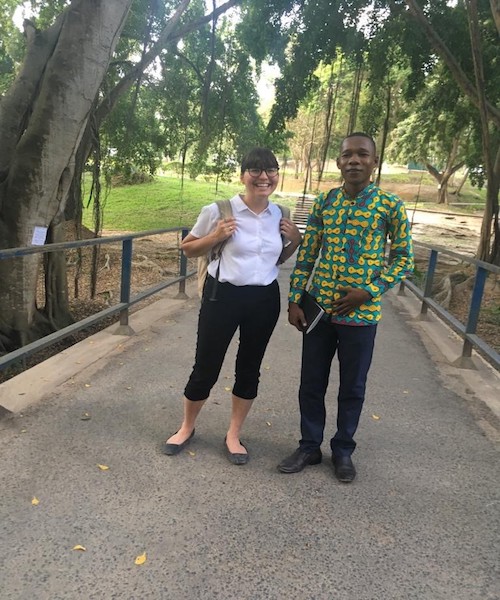Working Paper 5
Leonard Chimanda, University of Dar es Salaam
Stéfanie Morris, University of Ottawa
Executive Summary
In the summer of 2019, Leonard Chimanda, a Masters candidate of Laws in Migration and Refugee Law at the University of Dar es Salaam and Stéfanie Morris, a researcher at the University of Ottawa were tasked to evaluate whether there are gaps in Tanzania’s current national legal and regulatory framework.

In the summer of 2019, Leonard and Stéfanie were tasked to evaluate Tanzania’s national legal and regulatory framework.
Discrepancies between international law and policy and local practice have proved significant in Tanzania in recent years. As a country that has hosted refugees since its independence, with no end in sight, the protracted nature of this situation has challenged the government’s willingness to cooperate in the implementation of international policies.
Leonard and Stéfanie drew on legal texts, recent academic literature, reports from Civil Society Organizations (CSOs), and findings from semi-structured interviews with local and international actors. The research found that the Refugees Act allows for a great deal of flexibility in interpretation, while policies and practices have increasingly restricted the lives of refugees in Tanzania. Additionally, recent actions by Tanzanian authorities have contradicted some of their legal commitments and suggest increased collaborative, local research as a tool for future advocacy.
View the full LERRN Working Paper Series here:
More about Leonard
Leonard is a Tanzanian citizen who received is pursuing a Masters of Laws in Migration and Refugee at the University of Dar es Salaam, Tanzania. He is passionate about migration and refugee law and spent several years volunteering with various humanitarian organizations such as the International Committee of Red Cross and the United Nations High Commissioner for Refugees. Currently, he’s also a tutorial assistant in law at the University of Dodoma, Tanzania.
Leonard is happy to be a part of LERRN because it gave him the opportunity to put the knowledge and skills he learned in university into practice.
“I recommend the LERRN project as one amongst the appropriate forum through which refugee treatments in various countries in the world can be improved. I am delighted to continue with my passion and works on humanitarian assistance especially for refugees and migrants and it is my heartedly wish to keep in touch with LERRN.”
More about Stéfanie
Stéfanie has a Master’s in Public and International Affairs from the University of Ottawa and a Bachelor’s in Sociocultural Anthropology. She has worked on a number of qualitative and ethnographic research teams on subjects ranging from transnational families in India to refugee family reunification in Canada, and now Tanzania’s legal framework for refugees. She continues to work as a researcher for the University of Ottawa and as an analyst for Immigration Refugee and Citizenship Canada with the hope of contributing to improved conditions for migrant and displaced persons, domestically and internationally.
View Stéfanie’s full bio here.
Watch the video below to learn more about Leonard, Stéfanie and their work: